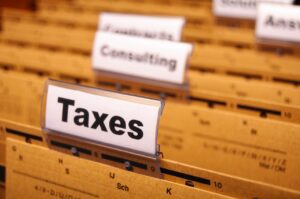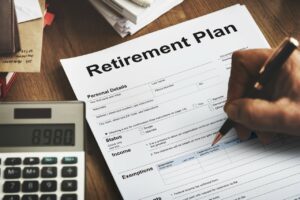It can be intimidating to owe money to the Government of Canada. People often assume that the government will use any means necessary to collect the debt. Owing money to the Canada Revenue Agency (CRA) can cause anxiety and uncertainty.
It is important to know the consequences of not paying taxes. It is also important to know what options are available to help pay your debt.
Consequences of not paying taxes
The CRA can take collection actions without having to go through the courts. The CRA takes these measures when they can’t reach an agreement with you or when you don’t follow rules under the Income Tax Act. This could mean not filing returns for income taxes or other tax documents like GST/HST returns.
Wage garnishment
If you owe taxes, the CRA may garnish your wages. Meaning they take their money owed from the source rather than waiting for you to pay. They do this by issuing a document known as a “requirement to pay” (RTP) to a third party that owes you money or holds your funds. This could be your employer, a different person, or a bank.
Credit score
The CRA typically tries to resolve the issue with you directly, but they will escalate if they don’t hear from you.
They can do various things, like hiring a collection agency, filing a lawsuit, and placing a tax lien on your credit report. All these will reflect in your credit score and appear on your credit report.
Seize your home
The CRA might put a tax lien on your home to collect the money you owe. This only happens in extreme cases. For example, if you consistently fail to pay your debt.
Tax liens
If your debt remains unpaid, the CRA may get a writ or memorial to take your assets and property and sell them. Examples include your car, boat, artwork, cottage, rental property, or house.
Withhold tax credits
The CRA can withhold child tax credits, benefits from Canada Pension Plan or Old Age Security, GST credits, and tax refunds.
Options for paying off the debt
There are many options to help you pay off your debt.
Friends and family
If you can’t pay the debt right away, do everything you can to get the money you need. Ask your friends and family if they can help you.
Home equity
You might be able to borrow money secured by the equity in your home. Loans secured by home equity typically have lower interest rates than other loans.
Home equity financing is not available from all financial institutions. Find out what kinds of financing are available from your financial institution.
Instalment plan
The CRA’s Payment Arrangement Calculator (PAC) and Monthly Net Income and Expense Worksheet can help. You can use these tools to figure out a few different payment plans.
Contact the CRA
Talk to the CRA directly to see if you can work out a payment plan that works for you. You can then work with them to devise a payment plan to help you pay off your debt.
Also, contact the CRA immediately if money gets tight and you need help paying your bills. Adjusting your payment schedule as needed can assist you in avoiding problems in the future.
Consumer proposal or Bankruptcy
In Canada, a consumer proposal is a bankruptcy alternative. A Licensed Insolvency Trustee negotiates this legally binding agreement with your creditors. A legal stay of proceedings protects you from creditors and debt collectors once you file a consumer proposal.
Filing for bankruptcy can discharge tax debts and obligations, lift a bank account freeze and stop a payroll garnishment.
Personal loan
You could get a loan to pay off your tax debt if you have enough money, good credit, access to a qualified co-signer, or are willing to put up an asset as security.
But keep in mind:
- You might have trouble paying if something happens, like losing your job, having a child, or getting divorced
- If you have a co-signer, the bank will pursue them if something happens
- You could lose the asset if the loan defaults
Tax resolution firm
You might need extra help when you owe a lot of money to the CRA. For example, your debt may be too high, or your budget may not allow monthly payments. In particularly dire situations, a good option is to discuss your specific financial circumstances with a tax resolution firm. They specialize in working with the CRA to come up with a plan that will work.
Remission review
A remission order is a unique and unusual measure. Remission provides relief from federal tax, interest, penalty, or other debt. Remission might receive consideration when relief is required but not obtained.
Preventing the same situation again
Take time to figure out how you got into your current situation. Understanding what got you there will help prevent it from happening again.
- Self-employed individuals should estimate the income taxes they will owe at the beginning of each year. Then remit one-twelfth of this amount monthly to the authorities. Then, at the end of the year, tax time will be fun because you will only have a little income tax debt or none. You might even receive an income tax return!
- Be prepared. Know your tax rate. Use an income tax calculator. File your taxes before the due date
- Last, but not least, ensure that you live within your means. Creating and sticking to a realistic budget will help you avoid any surprises. Avoid racking up extra credit card bills. Try to put some money away.
Conclusion
File taxes quickly, stay calm, and get help if you need it! We all pay taxes, whether we like to do them early or put them off until the last minute. It is best to make the process as simple and painless as possible and to get any necessary help. Fortunately, there are many resources available.
Understand your options to deal with tax debt in Canada and choose the best one for you.
Already facing financial struggle because of tax debt/ OUr Credit Counsellors can help. Contact us today to work with them to come up with a plan to debt-free living.




